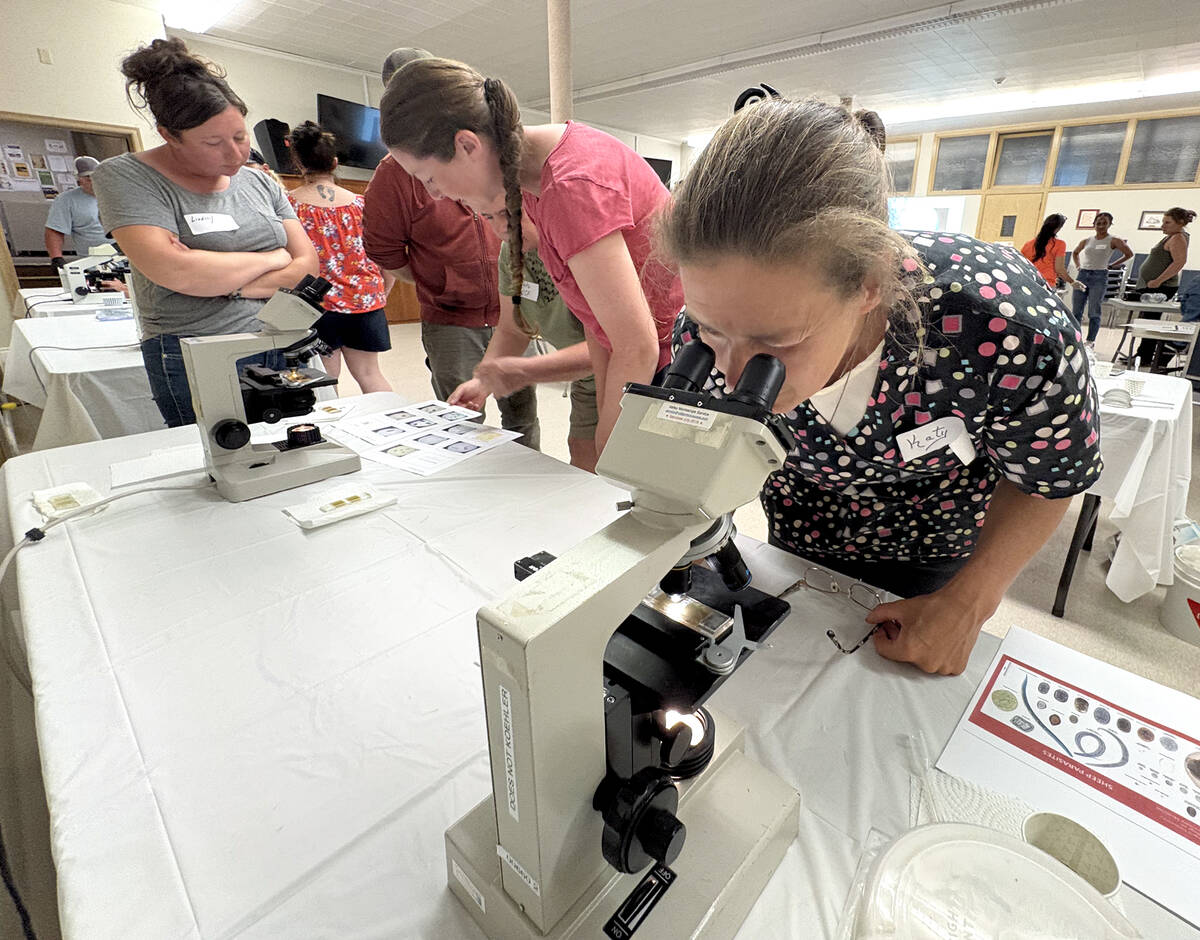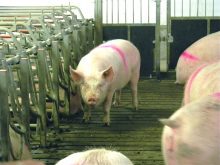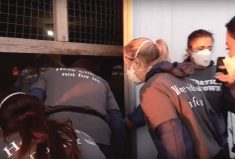The provincial and federal governments say lifting European tariffs of Canadian cheese will open doors, but Manitoba’s dairy farmers disagree
 Local cheese makers are still struggling to assess the impacts of Canada’s newly minted trade deal with the European Union, but they know one thing for sure — grocery store shelf space is already at a premium when it comes to fine cheeses, and things are about to get even tighter.
Local cheese makers are still struggling to assess the impacts of Canada’s newly minted trade deal with the European Union, but they know one thing for sure — grocery store shelf space is already at a premium when it comes to fine cheeses, and things are about to get even tighter.
“Any time you add a significant amount of supply into the system, which is what’s happening right now with this trade agreement with the European Union, it concerns us,” said Ivan Balenovic, president and CEO of Bothwell Cheese. “We’re always fighting for that shelf space.”
Read Also

Smart deworming for sheep starts with individual fecal egg counts
Fecal egg count tests are one step to managing dewormer resistance and managing sheep parasites on Canadian sheep farms to maintain flock health.
Under the yet-to-be ratified Comprehensive Economic Trade Agreement between Canada and the European Union announced earlier this month, 30,000 tonnes of European cheese will be able to enter the Canadian market. That’s more than double the current amount.
“We got blindsided by this, we didn’t see it coming, and it’s really difficult to analyze what the impact will be,” Balenovic said.
While the allowable imports only represent about four per cent of the overall cheese market in Canada, it represents 32 per cent of the fine or specialty cheese market, said the Dairy Farmers of Manitoba.
It’s a change that will hit specialty producers like Bothwell Cheese and Whiteshell Dairy hardest, said Henry Holtmann, the group’s vice-chairman.
“We work really hard to see these small cheese makers established… to build up a Canadian source of fine cheeses,” Holtmann said. “So that’s where our concern is because it’s taken us a long time to get to that point, and get those players in the marketplace.”
Quebec effect
The impact will be even more noticeable in Quebec and Ontario, where the majority of fine Canadian cheeses are produced.
“It’s a market we’ve really built up,” added David Wiens, dairy farmers’ chairman. “There are over 1,000 Canadian cheeses and that part of the market has been growing.”
The imports will also mean less Canadian milk will be needed for cheese manufacturing, lowering overall milk production, Wiens said.
And while the trade deal promises Canadian cheeses unfettered access to European markets, those in the dairy industry say the provision is meaningless.
European tariffs will be eliminated, but to be price competitive with European cheese, Canada would have to set dairy export prices below its own domestic cost of production — a practice ruled illegal by the World Trade Organization.
“There is no level playing field between Canada and Europe on dairy production,” said Yves Leduc, economist for Dairy Farmers of Canada.
Under Canada’s supply-managed system, the price to farmers is set by a federally regulated cost-of-production formula. In Europe, dairy farmers are paid the world price for their milk, which is below the cost of production and then the European Commission subsidizes them up to 50 per cent of their income, Leduc said.
Further behind than before
Wiens said the proposed trade deal eliminates regulations that had allowed 3,000 tonnes of Canadian cheese to enter the European Union on equal footing.
“We’re actually even further back than we were before,” he said.
Ron Kostyshyn, minister of Agriculture, Food and Rural Initiatives, was unavailable for comment, but his press secretary said he lauded the removal of European tariffs.
“Canada will have duty-free, quota-free access to the EU cheese market, which is extremely important as we see expansion currently happening within the Canadian cheese market,” she wrote in an emailed statement, adding “the federal government has committed to monitor the impact of CETA on dairy producers and examine programs to mitigate negative effects if necessary.”
Agriculture Minister Gerry Ritz has said whatever business Canadian dairy producers lose to increased imports of European cheese will be more than made up by rising cheese consumption. Leduc questions that claim. He said the minister overstated the annual growth in cheese consumption which is in the order of one per cent per year in line with the growth in the population.
However, Holtmann noted the trade agreement appears to leave supply management intact.
“We really have to evaluate what it means and where we’re going, but I firmly believe that the pillars of supply management are still there,” he said. “But we just have to discuss and find out about that resolve. Is it the thin edge of the wedge? I don’t know.”
Others believe it is.
“In spite of the fact the federal government has sworn up and down it is protecting supply management, anyone who had participated in any of this dismantling of the agricultural infrastructure in Canada knows very well nobody is safe… it’s just a matter of time,” said Beverly Stow, a regional director with the National Farmers Union.
Meanwhile, Balenovic said he is hoping his customers will continue to buy Bothwell cheese.
“I’d like to think that we have a very loyal customer base throughout Manitoba and Western Canada, and nationally for that matter — we make a specialized product, but it will impact us,” he said.



















